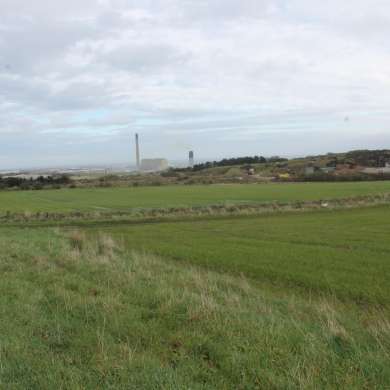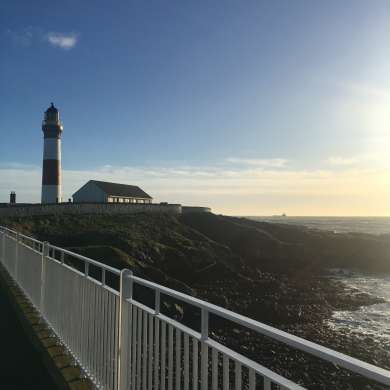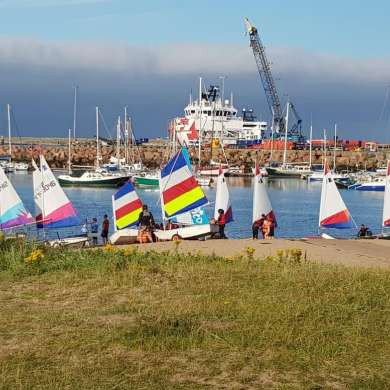With tender negotiations well underway for the converter station and cable packages, NorthConnect has now issued the Invitation to Tender (ITT) for the UK Enabling Works package.
Enabling works at the Fourfields site near Peterhead will prepare the area for the arrival of the converter station construction and cable laying teams and is a major piece of civil engineering in its own right. Careful materials management on the site will mean that there will be no off-site disposal as part of the works, in line with the planning conditions.
Gary McCann, NorthConnect’s Enabling Works UK Package Manager said: “We are delighted to have been able to issue this ITT to those civil engineering companies who successfully pre-qualified at the end of last year. The enabling works will require around three quarters of a million tonnes of soil and rock material to be extracted, stored and then re-used on site, which is a major challenge in itself. In addition, the site terrain will require some innovative geotechnical and civil engineering solutions to make sure a competent development platform is handed over to the next phase of the construction. We also have a number of environmental protection challenges to deal with, but I am confident that the experience of the various bidders will ensure this phase of the project is delivered successfully, and we will continue to work closely with the local community and other stakeholders to build on the relationships we have developed over the years.”
NorthConnect is currently awaiting the outcome of the hearing process in Norway which has seen the report issued by NVE, the Norwegian Energy Department at the end of 2018, put out for public consultation. The hearing process is due to conclude in March of this year and then the Ministry of Petroleum and Energy (MOPE) will assess all of the submissions and make a recommendation to the Minister.
NorthConnect will enable Norway to import excess wind power when it is very windy in the winter and relieve constraints on the surplus of renewable power in Scotland which is unable to get to market. In addition, the cable enables Norway to export hydropower to Scotland in the summer when it has reduced renewable energy capability in comparison to Norway, and will be the only source of green back-up capacity capable of balancing Scotland’s needs over periods of days or weeks of calm weather.
With the announcement of initiatives such as a ban on new petrol/diesel/hybrid vehicles by 2035 made by Prime Minister Boris Johnston at the launch of COP26 last week, and Scotland’s ambitious plans to achieve net zero emissions by 2045, five years ahead of UK, it is imperative that every measure possible is taken to increase the use and production of clean, green, renewable energy.


